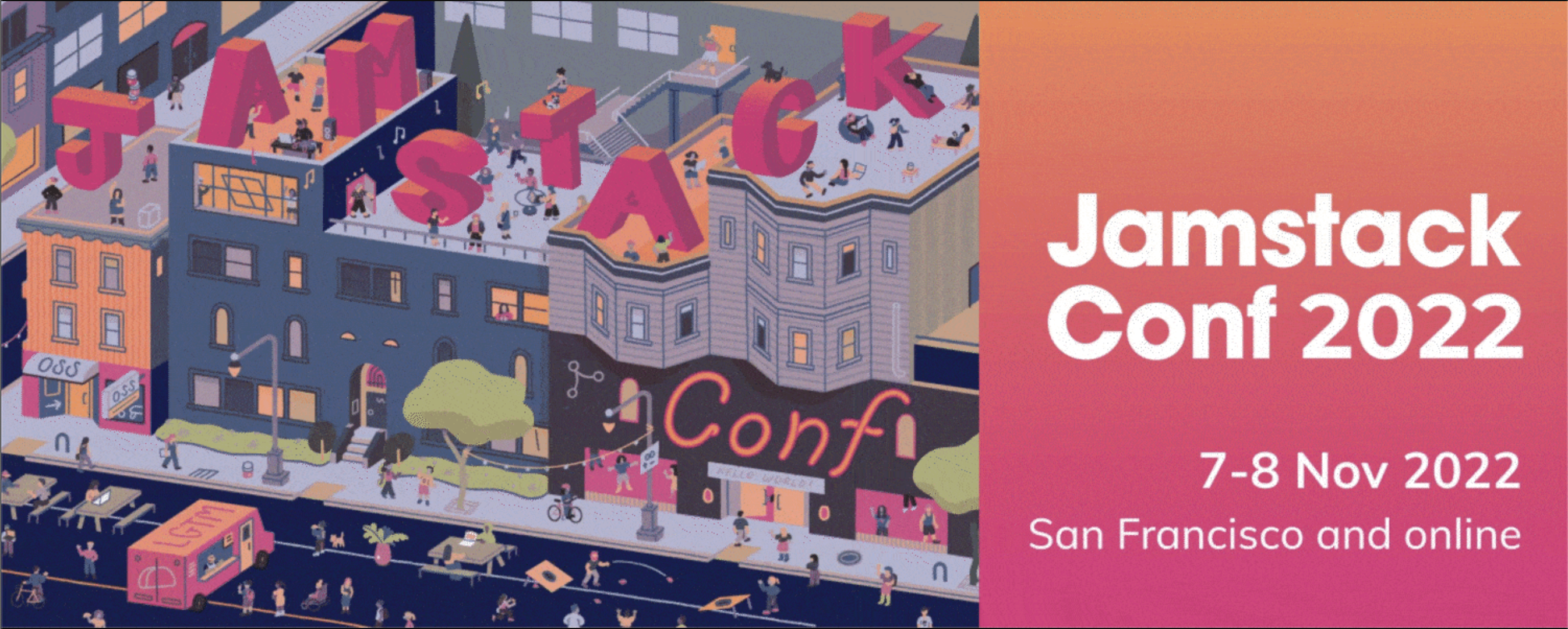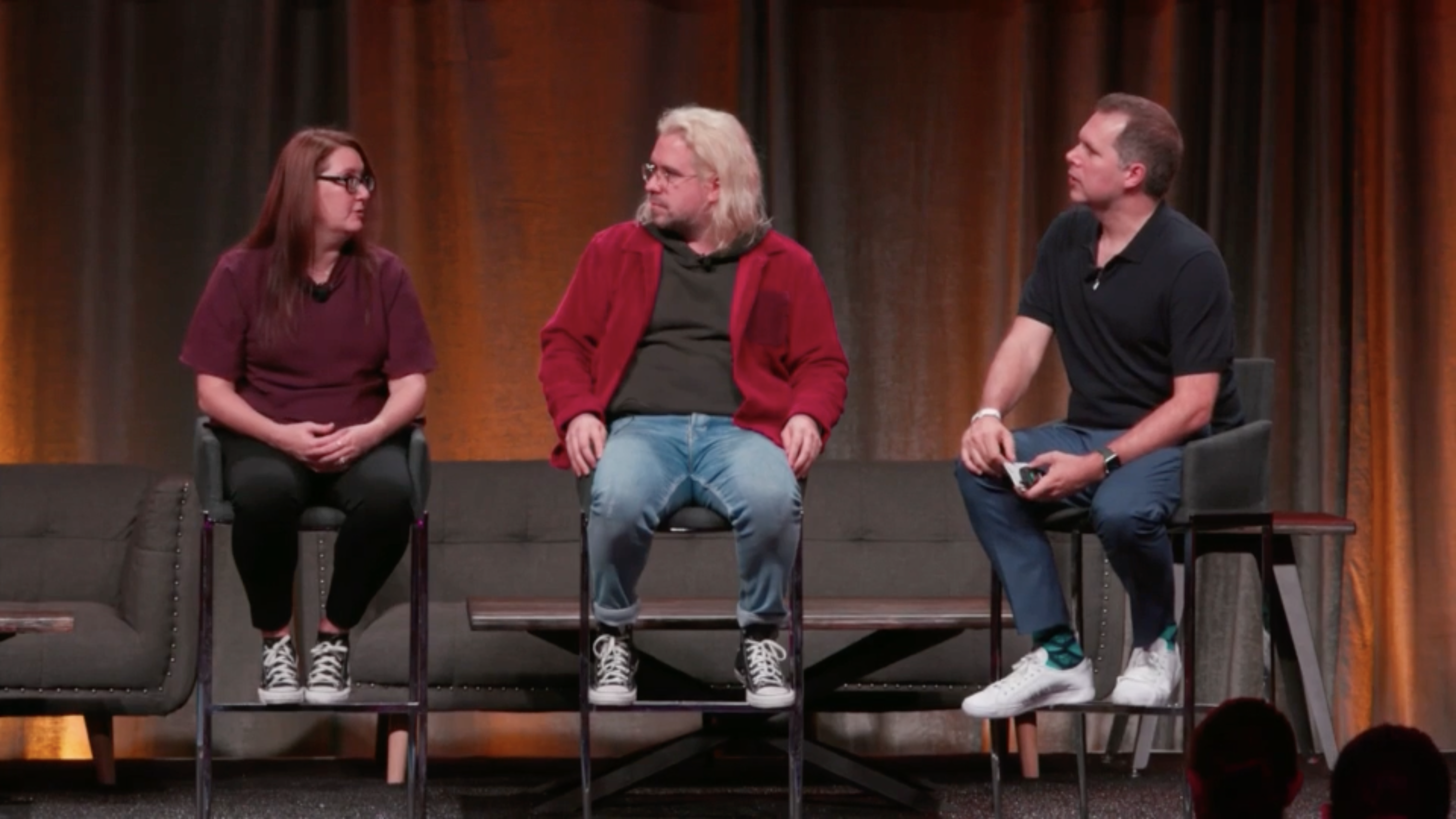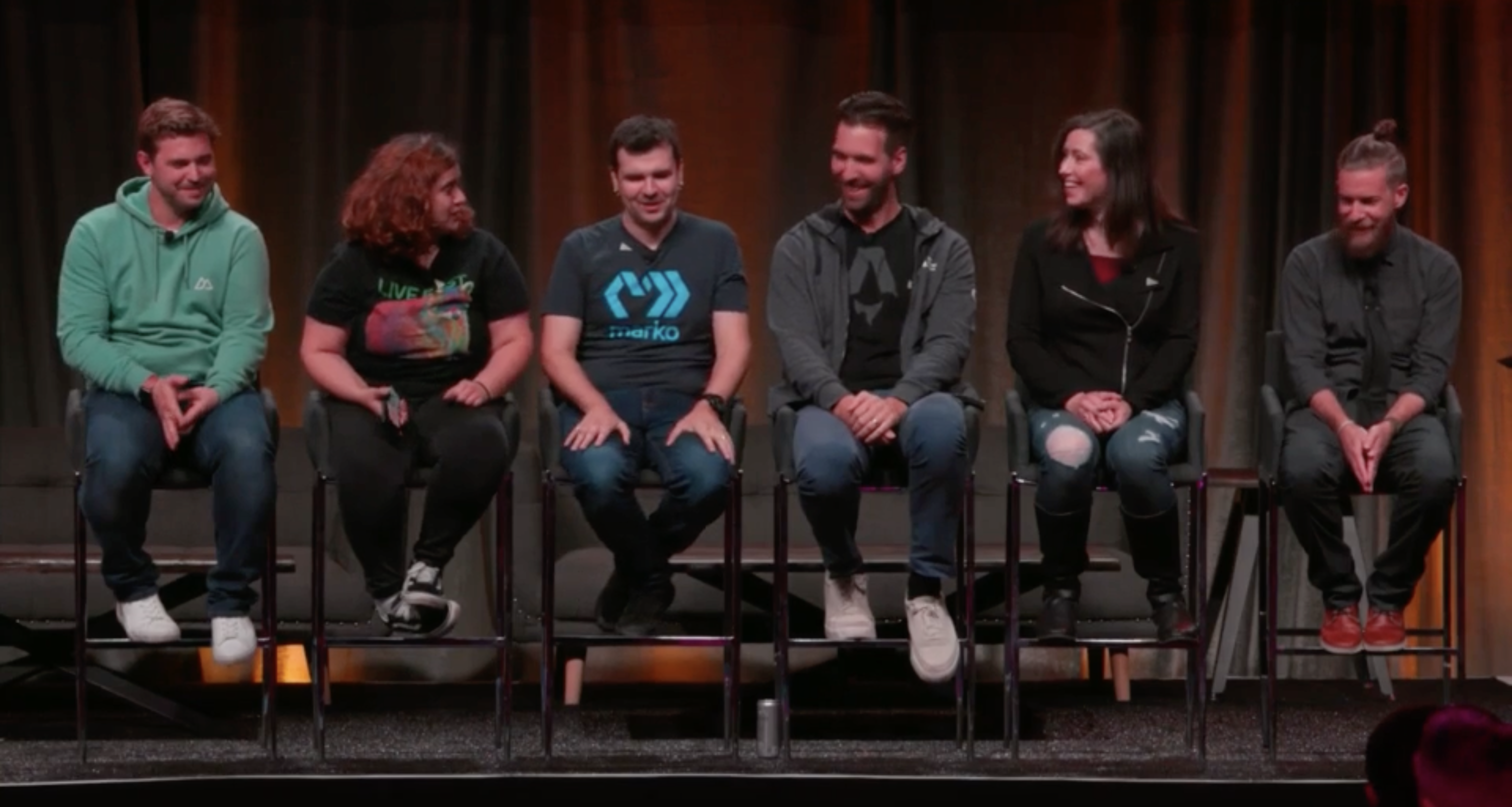
I attended Jamstack Conf 2022 last week virtually, and was impressed with the quality and importance of the talks, which ranged widely on the subject of modern web development. While I don’t have space here to survey them all, I have recorded a few highlights from these collegial, engaging, and entertaining presentations below.
To begin, I want to commend the presenters’ creativity and accomplishments. I particularly enjoyed Senior Developer Advocate at Stripe Charlie Gerard’s keynote explaining how JS, the WebUSB API, and a Software-Defined Radio dongle can allow hackers to create a flight tracker. The Jammies awards (accompanied by the winners’ entertaining acceptance speeches), which were sprinkled throughout also served to keep things lively.
But what really stuck out to me at Jamstack Conf 2022 were the moments when speakers dove head-first into the most controversial issues in the frontend space.
Chatting About Stacks

One such talk that didn’t pull any punches was the Fireside Chat between Phil Hawksworth, Director of Developer Experience at Netlify and MC of Jamstack Conf, and two TripActions employees: Aaron Emery, a Full Stack Engineer, and Kady Wood, Sr. Director of Global Web Strategy & Experience. This customer case study was interesting to me for a number of reasons.
For starters, as a former frontend practitioner I like learning about what stacks companies use (TripActions’s Stack: Netlify, Vercel’s Next.js framework, Contentful headless CMS). Peeking under the hood is the sort of shoptalk that I attend conferences in order to enjoy. Professionals sharing their excitement for tools while weighing pros and cons never gets old. What also interested me was the candid discussion of the difficulties involved in ensuring that their web strategy meets the needs of marketers and developers alike. In fact, Emery explains that the folks at TripActions selected Contentful because it was the most developer and marketer friendly of all the CMSs they reviewed. According to Wood:
I wanted something that was developer friendly, but it was also really, really easy to use for our marketers. I wanted them to be able to go in and right away feel like they can make updates, that they can schedule things, they can preview things very, very easily.
Although customer case studies can sometimes feel stale and rehearsed, the conversational style facilitated by pairing a developer and marketer made this talk compelling.
The Framework Wars

Another panel I want to highlight is “OSS Is Out to End the Framework Wars.” In addition making an impression on me as someone deeply curious about this very issue, I argue that this panel serves as a microcosm of the Jamstack Conf as a whole. Let me explain.
The Jamstack Conf organizers assembled an impressive group of practitioners to weigh in on the thorny subject of frontend framework proliferation. Moderated by Sara Vieira, Developer at Axo, panelists for this keynote included Ryan Carniato, Creator of SolidJS and Principal Engineer at Netlify; Jessica Janiuk, Angular Team at Google; Fred Schott, Co-Creator of Astro; Alexandre Chopin, COO at NuxtLabs; Zach Leatherman, Creator of 11ty and Staff Engineer at Netlify.
The questions Vieira asked are top of mind for anyone trying to make sense of frontend frameworks: an explosion which has made the frontend space seem both exhilarating and impossibly daunting. Beyond the tired idea that React Ruined Web Development, panelists addressed foundational questions like: why have so many new frameworks appeared in recent years? Here are a few of the panelist’s (paraphrased) responses:
- Not that more are created, more are just gaining traction now.
- New use cases.
- New needs (performance, SEO, web vitals).
- New tools allow for more capabilities.
Clearly this proliferation (or seeming proliferation) has come about for good reason, and yet the calls for a single framework to arise victorious as the universally agreed upon, monolithic choice refuse to be silenced. Janiuk suggests that labor is a big culprit for organizations wanting to choose one framework rather than selecting the best framework for their individual use cases. It is cost prohibitive to hire experts to build solutions using several frameworks. This continuing bias toward One Framework to Rule them All is also tied to ideas of corporate sponsorship Janiuk argues:
People in the past have looked to these big corporations to sponsor frameworks as a source of stability. And I think on the Angular side people still kind of view it that way, and I think that in other cases that trust has changed a bit as to whether people want to support company X or company Y, and I think a lot of people are going to these that are more individually produced for reasons like that, regardless of whether those reasons are valid or not.
But the real elephant in the room during the “OSS Is Out to End the Framework Wars” panel (and Jamstack Conf 2022 more broadly) is competition: the so-called War. What everyone wants to know, in Vieira’s pithy characterization of the subject:
Why are you so nice?
Is the tent under which all these framework developers (on stage and off) large enough to accommodate all participants? According to these panelists, the answer is an uncompromising, Yes. The tent is capacious, and the more folks that decide to build a framework the merrier.
The “we’re all in this together” approach to frameworks is central to the Jamstack ethos, which doesn’t pick favorites. Companies, and especially those with OSS projects, don’t advocate solely for their own solution anymore because the community benefits by supporting all players. Everyone is cooperating, collaborating, and celebrating the success of rivals (at least publicly) because there is a universal desire for the the field as a whole to progress.
Importantly, all frameworks improve by building upon (stealing?) the community’s good ideas—often, as Schott and Carniato joke, by copying the competition. As Leatherman emphasizes,
We’re all ready for the next thing … anything that helps to move the web forward, and whatever framework that might be.
Because no one knows what the future holds, more frameworks are necessary to meet future challenges and opportunities.
In a sense, this five person panel hammered home the message that pervaded all facets of Jamstack Conf 2022. As Hawksworth expressed it in his opening remarks:
We’re all here for our love of building for the web.
Disclaimer: Google and Vercel are RedMonk customers.
No Comments